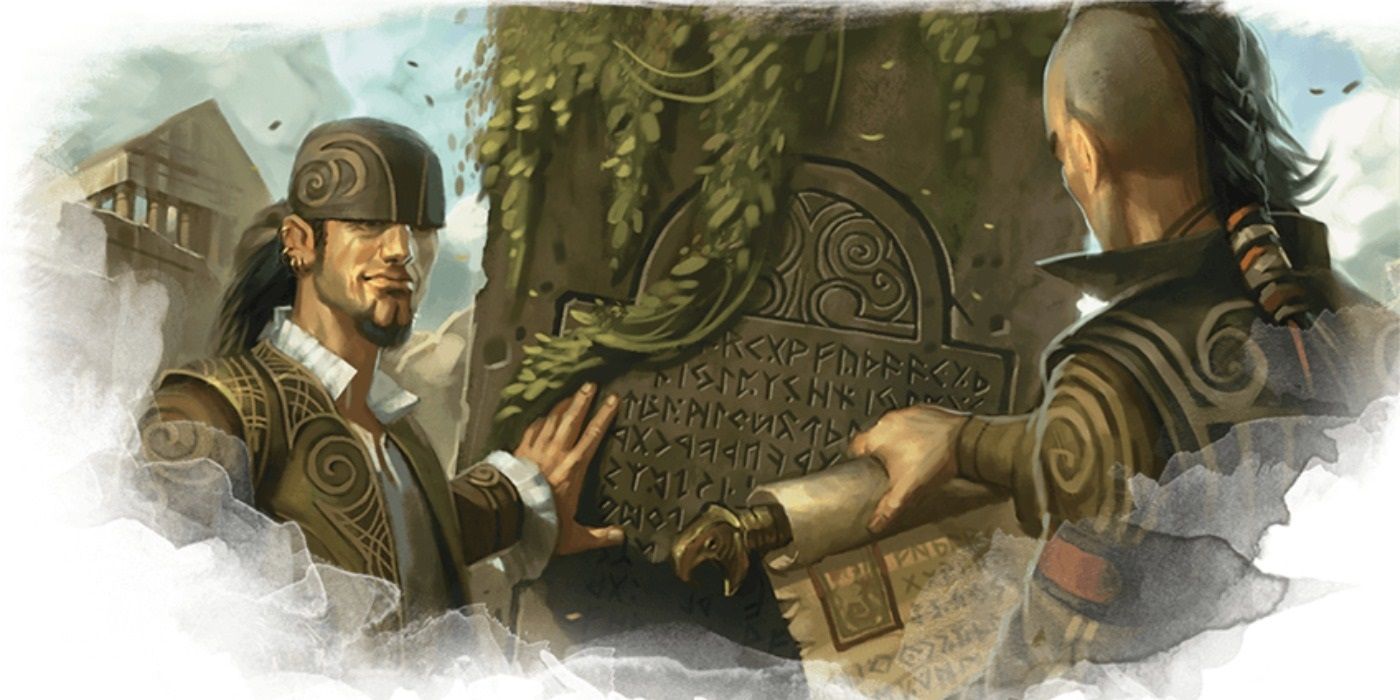Every Dungeons & Dragons campaign is unique, and this can in no small part be attributed to the many Dungeon Masters who run those campaigns. DMs dedicate a lot of time and creativity in order to build lovable characters and interesting locations for D&D campaigns, and in doing so help to ensure a fun experience for their players. Although a DMs job is never an easy one, having a group of players who look to help out their Dungeon Master can make the job much more enjoyable. For players looking to give their DM a hand, these are a few tips to consider.
For the sake of roleplaying, D&D players should always pay close attention to details about the world. Whether it be the location of a potential quest or the name of a character, absorbing any information a Dungeon Master provides is a great way to stay engaged and help the party. The best way to do this is for the player to take careful notes, since this will mean the DM does not need to consistently remind the party about things they should know. If playing in a homebrew Dungeons & Dragons setting, this advice is especially important. Dungeon Masters may be excited to share the world they have created, and players listening carefully is a great way to encourage them. Although this varies based on the campaign, it may also be best to avoid outside distractions such as a smartphone while playing.
The term "Rules Lawyer" is a popular one in the D&D lexicon, although it's definition may vary from group to group. In short, a Rules Lawyer is a player who knows anything and everything about D&D's rules, and will not hesitate to share that information during gameplay. Most Rules Lawyers are actually a welcome addition to a D&D party since every Dungeon Masters makes the occasional mistake, but this still has it's limits. If a Dungeon Master wants to change a rule for the sake of the D&D campaign, it is generally within their power to do so, no matter how much a Rules Lawyers wants to argue. While players should feel free to speak with their DM if they have an issue with the campaign, disrupting an ongoing session with an argument is not the way to go about it.
How To Collaborate With A DM In Dungeons & Dragons
Since Dungeons & Dragons is a game all about storytelling, players should feel free to continue contributing new ideas about their character as well as the world. Whether it's during the session or by sending a text in the middle of the weak, almost every DM loves it when their players want to share new details about their character's story. This process should always begin before the first session, where players can create a detailed backstory that still leaves plenty of room for the DMs choices. Collaboration is at the heart of a Dungeons & Dragons campaign, and working together on a player character will make them even more special.
It may seem minor, but one of the best things that players can do after a Dungeons & Dragons session is to thank the DM and to tell them what they loved about the session. Planning a campaign is a lot of work, and hearing positive feedback is a great reward for all the effort that Dungeon Masters put into the game. If players make the effort to help out their DM whenever possible, the Dungeons & Dragons campaign will be guaranteed to benefit from it, and it will make for plenty of memorable moments during gameplay.


